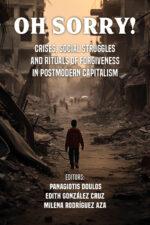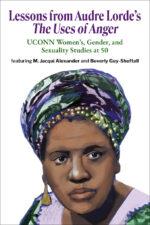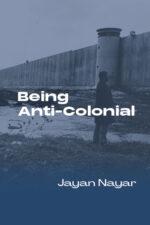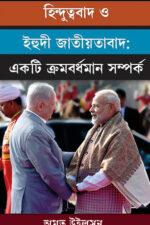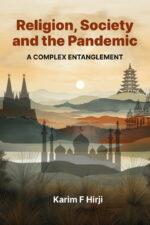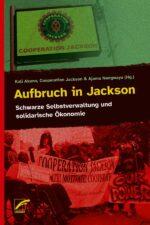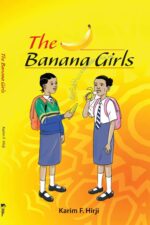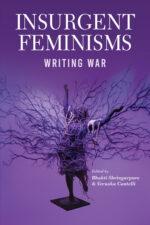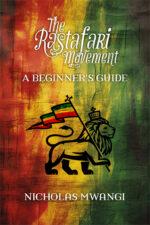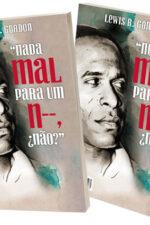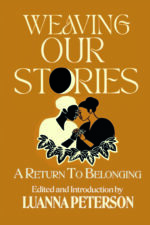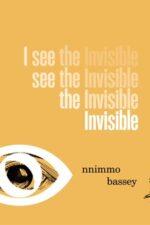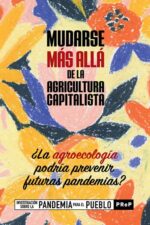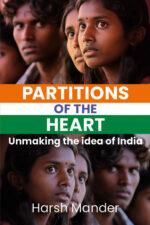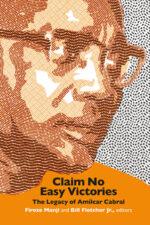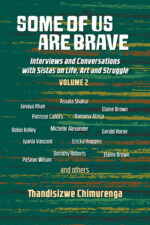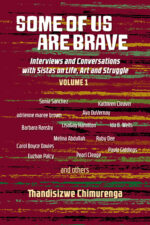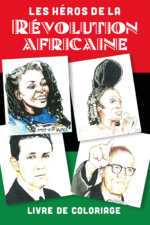-
Oh, Sorry! Rituals of Forgiveness, Crises and Social Struggles in Postmodern Capitalism
As the world grapples with the legacy of crimes of enslavement, colonialism, genocide and mass killings, imprisonment and murder of children, attempts at eliminating cultures and history of Indigenous peoples, looting and other crimes against humanity, the performance of public atonement has become increasingly prevalent. Apologies from state actors and institutions are issued in solemn ceremonies, often acknowledging the collective guilt for historical atrocities. Despite the solemnity of these events, there is a growing scepticism surrounding the sincerity of these apologies, particularly when they are not accompanied by tangible reparations, healing, reconciliation or systemic change. This scepticism is rooted in a perception that these acts of contrition are sometimes less about making amends to the aggrieved and more about assuaging the guilt of the aggressors and maintaining the status quo, providing the illusion of progress without the substance.
In this compelling work, Oh, Sorry! Rituals of Forgiveness, Crises and Social Struggles in Postmodern Capitalism, the authors unveil the complex interplay between public apologies, social justice and popular mobilisations. They argue that these acts of contrition while heralding unresolved histories into the public eye, serve as battlegrounds where the definitions of truth and the contours of historical memory are fiercely contested. This collection of essays illuminates the paradoxical nature of these rituals, positing that rather than catalysing transformative change, they simply cement the prevailing societal structures, emboldening states to persist in their destructive paths under the guise of remorse. Such apologies often precede an expected forgetfulness, rendering truth a malleable tool to compartmentalise the past as a distant occurrence, not an ongoing narrative. The discourse laid out in these essays emphasizes the tension inherent in the act of forgiveness—an act that, within the established framework, demands that the state remain unchallenged, wielding the power to decree what should or should not be forgiven.
The editors of this book did not intend this to be a comprehensive treatise on the rituals of forgiveness: the chapters are devoted primarily to the experiences of Latin America, particularly of Mexico, Guatemala, Chile, and Brazil. But there is also a chapter on the struggles for Palestine — so relevant in the face of the current genocidal invasion by the Zionist State of Israel into Gaza, the world’s largest and most densely populated concentration camp. Nithya Nagarajan explores the ongoing plight of Palestinians since the Nakba in 1948, and event that, for over 75 years, has not only subjected Palestinians to severe hardships but has also seen their resistance and struggle for liberation being ideologically effaced by Israeli and mainstream media efforts, portraying Palestinians as victims rather than agents of revolution.
Forward by Firoze Manji
Introduction
One
Rituals of Forgiveness: The Performance of State Violence in the Context of Crisis by Panagiotis Doulos & Edith González Cruz
Two
From Forgiveness to Permission: The State and “the Indigenous” in the Face of Planetary Collapse by Ines Durán Matute.
Three
End(s) of Forgiveness by Minas Vlachos
Four
The Fierce Dispute for Memory, Truth and Justice in Guatemala by Carlos Figueroa Ibarra.
Five
Never Again? A Critique of Narratives of Forgiveness and Reconciliation in Post-dictatorial Chile by Roberto Longoni Martínez.
Six
Rituals of Forgiveness as a Political Strategy of the Capitalist State: The Brazilian Case of “O Amor Venceu” in Lula’s Victory in 2022 by Leonardo Carnut, Lúcia Dias da Silva Guerra & Áquilas Mendes.
Seven
The No-bodies: Between Forgiveness and Overflow. Notes Against Forgiveness as a Dispositive of Control in Times of Explicit Antagonism by Milena Rodríguez Aza.
Eight
The March of Return: Struggle for Palestinian Liberation in the Unfinished Nakba by Nithya Nagarajan.
-
Lessons from Audre Lorde’s The Uses of Anger: UCONN Women’s, Gender, and Sexuality Studies at 50
USD $ 15.00In recent years, we have witnessed renewed calls for women to embrace anger as a source of power. These voices have Lorde’s “The Uses of Anger”, first delivered at the University of Connecticut (UCONN), Storrs, in 1981, to thank for charting an innovative scholarly and poetic terrain that theorizes anger as much more empowering and liberating than conventional discussions of the term typically allow.
Lorde’s essay redefined anger productively, approaching it as an epistemological tool igniting a desire for self and collective liberation. The result was a remarkable critical reflection that laid the groundwork for deconstructing broader systems of oppression, particularly, heteronormativity, heteropatriarchy, institutionalized racial poverty, racial capitalism, and white privilege. Lorde’s essay moved with precision, centering Black women’s struggles in a world built around the use – and abuse – of racialized people subjected to systematic dehumanization.
In their introduction, Jane Anna Gordon, Elva Orozco Mendoza, and Sherry Zane reflect on the inheritance, lessons, and responsibilities that Women’s, Gender, and Sexuality Studies must grapple with if it is to deepen and fulfill its radical mission.
Guided by the imperative to look backward to understand the present and forge a future, the book closes with a sankofic interview with M. Jacqui Alexander and Beverly Guy-Sheftall, conducted by Briona Simone Jones.
-
LENIN: The Heritage We (Don’t) Renounce
These 100 tributes, from every continent, are like building blocks, in word and image creating not a mausoleum, but paths to a new future… It’s about thinking with and through Lenin, and the proof is here. — Isabelle Garo, author of Communism and Strategy.
The organic intellectuals in this book have woven a thread of what is to be done in the heart of fascism today, a tool for reclaiming our humanity. — Gacheke Gachihi, member of the Kenya Organic Intellectuals Network.
A left that rejects Lenin’s legacy in times of catastrophic capitalism and imperialist war can neither be truly left-wing nor have a decisive influence on world history. —Michael Brie, author of Rediscovering Lenin.
Lenin: The Heritage We (Don’t) Renounce brings together 100+ authors and visual artists from 50+ countries across the world – from Afghanistan to Zimbabwe – in order to critically commemorate the hundredth anniversary of the death of Vladimir Ilyich Ulyanov, aka Lenin, on 21 January 1924.
Combining academic, journalistic and more personal-political texts, including poetry, theatrical skits and fictional writing, the books’ contributors aim to identify and constructively engage with the living legacy of Lenin’s life and work before, during and after the October Revolution. Concretely, the 100+ texts deal with a great variety of “old [Leninist] truths that are ever new” (Lenin), both historically and in today’s times: Imperialism, the National Question and the Right to Self-Determination, the Vanguard Party, Trans Liberation, Ecological Leninism, Dialectics, Artificial Intelligence, Military Marxisms, Black Liberation, Communist Feminism as well as Revolutionary Dreaming and Organising, among many others.Also, Lenin is put into dialogue with a number of revolutionary comrades-in-arms, among them Amílcar Cabral, Mao Zedong, Julius Nyerere, José Carlos Mariátegui, Julio Antonio Mella, G.F.W. Hegel, Antonio Gramsci, Qu Quibai, Alexandra Kollontai and Rosa Luxemburg.
In sum, the book aspires to help liberate the old Ilyich from the musty, petrifying solitude of his mausoleum and to invite him back into the “real movement, which abolishes the state of things” (Marx & Engels) in the here and now, i.e. our multiple, intersecting struggles against all types of capitalist-colonial-heteropatriarchal-ableist oppression and for the rekindling and strengthening of the new Communist horizon.
While many on the contemporary Left continue to openly disavow any association with Tovarish Lenin, Lenin: The Heritage We (Don’t) Renounce affirms the opposite – that there will be no revolution without Vladimir Ilyich among our rank-and-file comrade-ancestors. Or in the words of one of the book’s authors, Himani Bannerji, “We neglect Lenin’s voice at our own peril.”
To work, everybody, to work,
the cause of the world socialist revolution
must and will triumph.
(Lenin) -
Inutabada o iiuhadabadadara sade era samaraka (হিন্দুত্ববাদ ও ইহুদী জাতীয়তাবাদ : একটি ক্রমবর্ধমান সম্পর্ক)
This is a Bengali translation of Hindutva and its relationship with Zionism, by Amrit Wilson: ISBN 978-1-990263-76-7. Written in December 2022, this text is based on a lecture given earlier at the invitation of the Institute of Palestine Studies. Since then, the relationship between Israel and India has deepened further and atrocities have skyrocketed in both countries. On 5 April 2023, Israeli forces stormed Al Aqsa Mosque compound in occupied East Jerusalem and attacked worshippers inside. At the same time, Israel is facing internal turmoil in a battle between a diverse group, including those who think the current settler colony is a democratic nation and want things to remain as they are, and those who stand even further to the right. Significantly, the BJP, India’s ruling party, supports the latter. This book is about Hindutva, the ideology which drives the Hindu-supremacist Bharatiya Janata Party (BJP) regime of Prime Minister Narendra Modi, and Zionism, the ideology of the Israeli apartheid state. In this era of rising fascism, these two remarkably similar ideologies are crucially important in cementing the economic and military alliance between two of the world’s most repressive right-wing states – while helping to legitimize them in cultural arenas. Israel is, of course, a settler colonial state, but it is also, like India, a fascist state, not only because of ‘the extremist parties that [are] part of the government’ but also because of ‘their enablers – Netanyahu and his chauvinistic Likud party which long strove for a Jewish state dominating both sides of the Jordan River.’ In the words of Marwan Bishara, Netanyahu is ‘the godfather of modern Israeli fascism.’ This essay focuses primarily on Hindutva, discussing Zionism mainly to highlight its similarities, links and increasing alliances with Hindutva.
-
Religion, Society and the Pandemic: A complex entanglement
In nearly three years, starting from early January 2020, the coronavirus directly and indirectly consumed the lives of nearly 20 million people worldwide. This book explores the interplay between the coronavirus pandemic and religion on the theological, institutional and societal dimensions. It focuses on Hinduism, Buddhism, Christianity, Islam and secularism, but some minor faith systems are also covered. Exploring the evolution of the pandemic in seventeen nations, it asks: Was religious belief an obstacle or a positive factor in understanding the scientific basis of the coronavirus pandemic? Did religious institutions, leaders and laity facilitate or block the implementation of the official pandemic control measures? Was the role played by religion in the coronavirus pandemic affected by historical, social, economic and political factors? How did secularism operate in the coronavirus pandemic? Did the coronavirus pandemic enhance or undermine religiosity? The basic aim is to draw lessons from this pandemic that will facilitate how humanity may deal with future pandemics in a just and egalitarian social order.
-
Aufbruch in Jackson [German edition of Jackson Rising: Black self-management and solidarity economy]
USD $ 24.00German translation of Jackson Rising: The Struggle for Economic Democracy and Black Self-Determination in Jackson, MississippiHow black activists are building liberation practically from below: Departure in Jackson documents the history of one of the most exciting revolutionary experiments in the USA Present.
Since the 1970s, black liberation movements in majority-black Mississippi have taken change into their own hands. The Deep South should become the center of their independence – “Free the Land!” In the 2010s, the election of Chokwe Lumumba as mayor in the capital Jackson took an important step towards implementing the vision of assembly democracy, solidarity economy and an end to racial inequality. Lumumba dies unexpectedly in 2014, but his son Antar and the Cooperation Jackson continue to move forward.
We learn about the pitfalls of radical local politics and struggles for housing and land, democratic economic models and ecology, internationalist solidarity and the parallels to the Rojava Revolution and the Zapatistas, about encouraging experiences in which different concerns go hand in hand.
-
Insurgent Feminisms: Writing War
War is never just the war itself, it’s not the event or the epoch. War is the impossible and unending afterlife, the struggle to breathe after being bludgeoned, and the re-situating of one’s self and of one’s place after displacement and fragmentation.
Insurgent Feminisms: Writing War advances a new paradigm of war writing by focusing on gender. War is always fought upon the backs of women, often under the pretense of saving them. Yet, along the way, the brutalities unleashed on women during wartime remain relentless. In this collection, insurgency emerges in the raw and meticulous language of witnessing, and in the desire to render the space of conflict in radically different ways. These feminist and queer perspectives on war come out of regions and positions that disobey the rules of war writing. Comprising reportage, fiction, memoir, poetry, and conversations from over sixty writers, the collection includes contributions by Chika Unigwe, Nathalie Handal, Ubah Cristina Ali Farah, Suchitra Vijayan, Bélen Fernández, Uzma Falak, Otoniya Juliane Okot Bitek, Sarah Ladipo Manyika, Lara Pawson, Gaiutra Bahadur, Robtel Neajai Pailey, Sumana Roy and Lina Mounzer, among several others.
Bhakti Shringarpure co-founded Warscapes magazine in November 2011 and it has now transitioned into the Radical Books Collective.
Veruska Cantelli is a writer, translator, editor, and Associate Professor of Interdisciplinary Studies at Champlain College in Vermont, USA.
Insurgent Feminisms is refreshingly bold and emotive, pulling at the heartstrings —and a rich literary delight to boot. As you turn the pages, you will be enlightened, awed, triggered, outraged, guilt-tripped… Diverse women from the global South gift us the rare privilege to glimpse into the incredibly minute details of their experiences of literal and metaphorical wars; they break exciting new ground in knowledge production. The book jolts you out of the narrow focus of your existence and reminds you of the amazing power of women’s resilience. What a gem! – Sylvia Tamale, Decolonial feminist scholar, Uganda
Crimes against humanity, war crimes and their justification through imperial-racist civic and state action are not as distant as we would like to believe. Resistance, hope, and the tenacious will to return, too, survive in the most unimaginable ways. Insurgent Feminisms drives this point home in searing, poignant re-tellings from across the world. – Kalpana Kannabiran, author, sociologist and legal scholar, India
-
“Nada mal para um N—, Não?” “No está mal para un N—, ¿no?”
Escrito durante as comemorações do septuagésimo quinto aniversário da publicação de Black Skin, White Masks (“Pele Negra, Máscaras Brancas”), de Frantz Fanon, “Not Bad for a N—, No?” oferece reflexões sobre as circunstâncias da publicação desta obra clássica com os insights de Fanon sobre o que ele chamou de tentativa de “assassinato do homem” e a necessidade urgente de a humanidade se tornar “acional”.
Escrito durante las celebraciones del septuagésimo quinto aniversario de la publicación de Black Skin, White Masks (“Piel negra, máscaras blancas”) de Frantz Fanon, “Not Bad for a N—, No?” ofrece reflexiones sobre las circunstancias de la publicación de esta obra clásica con las ideas de Fanon sobre lo que llamó el intento de “asesinato del hombre” y la urgente necesidad de que la humanidad se vuelva “acción”.
-
Weaving Our Stories: Return To Belonging – An Anthology
“We are lovingly tethered to each other’s struggles, liberation and survival…This is the mantra sweetly embedded across this profound heartfelt body of work. Weaving our Stories is a beautifully curated montage of community voices committed to the preservation of their indigenous lands and culture. Here is an anthology that collectively teaches us how to resist, build and dream toward a liberated future. What Luanna Peterson and the contributors offer us is a divine vision to walk with our communities ancestors and descendants with a collective vision to world making. Throughout the anthology lives a chorus of powerful voices that are amplified in a series of interwoven manifestos, stunning visual art and spirited poetics often echoed in their mother tongue. Like strands of sweetgrass, these stories are interlocked and bound up across a multitude of lineages. Hawaii, like many of our homelands, has been a site of settler colonialism, US imperialism and pillaging of its most abundant lands. Every page of Weaving Our Stories gives us an opportunity to reimagine, regenerate and reclaim our legacies! What Weaving our Stories does is make visible the histories and possibilities of freedom for its people and living cultural archive. Upon reading this anthology, I began to realize that each of the contributors in the book serves as a griot of the oral history and creative traditions…which has always been an instrument of change and freedom! Add this to your 2024 booklist.” – Tarisse Iriarte Medina, independent curator, and consultant working in New York City and Puerto Rico
Weaving Our Stories: A Return to Belonging, edited and introduced by Luanna Peterson, is a book sewn seamlessly of art and heart. Every story stands bravely alone but is a part of the gripping whole. These are survivor stories, and they aren’t easy to tell. But that’s the point, isn’t it? The message will come home to you, as it did so beautifully to me. — Debra Lape, author of Looking for Lizzie – The True Story of an Ohio Madam, Her Sporting Life and Hidden Legacy and Factory Girl in the Rubber City – The Journal of Mary Cable.
Weaving Our Stories is a drenching of Spirit that helped me remember the shared purpose I have with the world and now with beloved Kalihi, Waipahu, Ko‘olauloa, and all of Hawaii. It is indeed an anthology that “… celebrates the radical and revolutionary role stories [play] in supporting our healing and liberation.” Mahalo, dear poets, artists, writers, and evolutionary revolutionists, for putting this collection together. Mahalo nui Luanna Peterson for holding the center with the grace of our kupuna – all of them. Time for us to heal. It is an honor to be connected to this kaupapa. — Dr. Manu Aluli Meyer
Full of strength and loving provocation, Weaving our Stories gathers poems, visual art, and stories of a new generation of Hawai‘i change-makers. The collection reminds us that we can seek liberation in our ancestral stories, that we reach for liberation by carrying the stories of others, and that we find liberation when we learn and extend the common patterns among us. It is a brilliant representation of Hawai‘i’s own. — Dr. Noelani Goodyear-Ka‘ōpua
We are lovingly tethered to each other’s struggles, liberation and survival… This is the mantra sweetly embedded across this profound, heartfelt body of work. Weaving our Stories is a beautifully curated montage of community voices committed to the preservation of their indigenous lands and culture. Here is an anthology that collectively teaches us how to resist, build and dream toward a liberated future. What Luanna Peterson and the contributors offer us is a divine vision to walk with our communities’ ancestors and descendants with a collective vision of world-making. Throughout the anthology lives a chorus of powerful voices that are amplified in a series of interwoven manifestos, stunning visual art and spirited poetics often echoed in their mother tongue. Like strands of sweetgrass, these stories are interlocked and bound up across a multitude of lineages. Hawai‘i, like many of our homelands, has been a site of settler colonialism, US imperialism and pillaging of its most abundant lands. Every page of Weaving our Stories gives us an opportunity to reimagine, regenerate and reclaim our legacies! What Weaving our Stories does is make visible the histories and possibilities of freedom for its people and living cultural archive. Upon reading this anthology, I began to realize that each of the contributors in the book serves as a griot of the oral history and creative traditions…which have always been an instrument of change and freedom! Add this to your 2024 booklist. — Tarisse Iriarte Medina, independent curator and consultant working in New York City and Puerto Rico
The young leaders and storytellers featured in Weaving Our Stories inspire and encourage us to move beyond received narratives that nourish bigotry or diminish one’s capacity for compassion and imagination. With powerful pedagogical and artistic impacts, the stories create space for us to name ourselves and heal out loud. The voices simultaneously remember and innovate as we re-familiarize ourselves with one another as well as ‘aina, to weave a tapestry of shared feeling and responsibility. Although the anthology speaks of loneliness and attempted erasure, its words also speak of deep belonging and strength—of the artistry, energy, ingenuity, and wisdom of people, place, and culture; of our commitments to one another; and the healing that comes from washing our eyes – and seeing our truth. — Dr. Maya Soetoro-Ng
Weaving Our Stories is a Hawaii-rooted abolitionist program that utilizes storytelling as a vehicle for liberation. Our mission revolves around teaching storytelling as an act of resistance, dismantling harmful existing narratives, and nurturing our ability to weave counter-narratives that acknowledge and celebrate the inherent beauty and brilliance within our storytellers. Through our stories, we advocate for justice and liberation.
This anthology follows the trail of esteemed works such as “This Bridge Called My Back: Writings of Radical Women of Color” and “Na Wahine Koa: Hawaiian Women for Sovereignty and Demilitarization.” This anthology includes poetry, essays, visual art, and narratives penned by authors and artists who identify as Black, Indigenous, and people of color from Hawaii and beyond. While our contributors span a diverse spectrum of experiences and identities, they all share a common commitment to individual and collective well-being. Our contributors astutely showcase how their expressions of resistance and liberation, whether through visual art or written text, align with one or more of the central themes of Weaving Our Stories: resistance through cultural memory, accountability, resisting false binaries, and countering hegemony.
In tandem with the community collection of stories that revolve around resistance, this anthology also highlights the remarkable achievements of our six accomplished Black youth organizers. These young individuals dedicated a year to the Weaving Our Stories Youth Series during the pandemic, delving into the power and relevance of storytelling in our journey of resistance and liberation. Each of the six youth activists provides an overview of their Community Impact Design Projects.
These culminating endeavors addressed community issues by proposing interventions that harness our resistance themes and our three Pillars of Liberation—namely, institutions, structures/methodology, and people.
This anthology offers celebrations of our triumphs, our joys, and our unwavering resilience. Simultaneously, they advocate for our ongoing resistance, insisting on justice and a sincere confrontation with the often-overlooked lived experiences that deserve acknowledgement.
-
I see the invisible
Author’s Note
Truth be told, I never thought I would write another volume of poetry after the last, I will not Dance to Your Beat (2011). The reason was that my previous volumes were reactive to the circumstances of the times. Patriots and Cockroaches (1992) was a reaction to the socio-political corruption that had engulfed Africa and dimmed the enthusiasm that had been built by the years of struggle for independence. Whereas we thought we were stepping into a post-colonial era, what we stepped into was a vicious neo-colonial times. The next collection, Poems on the Run (1995) was a reaction to military autocracy and the repression that followed. The volume was literally written underground. This was followed by Intercepted (1998) all written while detained at Kalakuta Republic of Alagbon Close. We Thought it was Oil But it was Blood (2002) responded to two things primarily – extractivism and the accompanying human and environmental rights abuses in the Niger Delta and elsewhere. The massive erosion of biodiversity and attacks on food sovereignty through the introduction of genetically modified organisms (GMOs) into our agricultural system inspired I Will not Dance to your Beat.
What you have in your hands, or on your screens, is a compilation that is largely more meditative than the previous collections. There are moments of reflection on the colonial and neoliberal foundations that permit a willful disconnection from nature and the resultant destructive extractivism.
Some of the poems came through conversations and poetry writing sessions with Peter Molnar, Maryam al-Khawaja — Rafto Human Rights laureates and Salil Tripathi, a member of the board of PEN International, in August 2017. The sessions held at a beautifully rustic location in Celleno, Italy, were documented on celluloid by the duo of Maria Galliana Dyrvik and Anita Jonsterhaug Vedå of SMAU, a multimedia firm in Norway. Poetic relationship with Maria and Anita has continued over the years and their work continues to inspire more and more poems.
We have also had time to ponder on the criminalization of environmental defenders and the burdening of victims with survival struggles with no life boughs. The poems were written over a wide span of time and require some pondering as poems often demand, of course. Although written over a broad time spectrum, they fall into identifiable themes. The harsh times that birthed the earlier volumes were blunted with doses of humour as poetry is largely therapeutic and contributes to our wellness and well-being.
In our communities, poetry and song are key tools for exposure of ills in our societies, for education and for rebuke. Poetry is an indispensable cultural tool with which we laugh at the wicked and add the needed bounce to our steps as we march on to end ecocide and give our people and other beings a chance to retain our being.
The call of this volume is that we must ensure that we see the invisible and hear the inaudible.
Nnimmo Bassey
Contents
Dedication
Author’s Note
OUR SOUL
Mother Earth our Teacher
Scarified and sacrificed
The Womb of the Earth
Choked by Convenience
I’m Not Afraid
I come from the future
Recent Ancients Foretold
Horizon
The Other Side
I like those bridges
Rising Smoke
Secured
Static Drip
Aloof
OUR INSPIRATION
Love
Gratitude
There is beauty
Twilight
Duty Bound
I Have Been in Motion
Barricades
Hill Huggers
Swamp buggies
Bumping into the Wind
Mangled Mangroves
Rainbows on the Sea
Stilts and Wiggles
The Stump I So Loved
Contemplation
Beads of Inspiration
Time Comes
Astonished monkeys
Seducing the Bees
The lands we fight to own
Tenants of Furious Times
OUR SIGHT
I see the invisible
Power!
Portals of Greed
Looter’s Boulevards
Cast a Vote
Political Will
This hate does not define us
OUR TIME
We Planted a Flag
Welcome to the age of paradox
Encrypted
By Me We Spoke
After Oil We Flourish (The Niger Delta isn’t a ticking ecological time bomb)
A Dirge for Fossil Capitalism
Return to Being
Python songs
Becoming Clearer
Riding the Waves of Time
When You Clock 6 and 2
Rainbows Through the Tears
Climate Debt Long Overdue
Poetry in the time of pandemic
We must breathe again
Net Zero Comes to Zero
Dreadful Liars On Heartless Shores
We are Seeds
Living Earth
We can plant a seed
In the Shadows of the Future (For Jay Naidoo & Stephen Pittam)
What is in that Barrel?
No More Sins to Confess
Pavements of Shame
Dawn in Celleno
Lago di Bolsena
OUR MIND
Ubuntu
Cloud
No vantage points
Memories
I Catch Myself
Holding my Peace
Dreams Dissolved
Traps Sold on Lies
Wicked Genes
Sinsibere
If the Sun Slept
-
Mudarse Màs Allá de la Agricultura Capitalista
El COVID-19 es una enfermedad neoliberal y la agroecología que libera a la tierra y a la gente de la codicia y hacia la soberanía alimentaria es el camino para salir de este desastre.
– Saulo Araujo, Amigos del Movimiento de los Sin Tierra de Estados UnidosSi quieres saber más sobre las conexiones entre el capitalismo racial, la agricultura industrial, la destrucción ambiental y las epidemias y pandemias, este es un excelente lugar para empezar.
– Arturo Castillon, coautor, El significado revolucionario dellevantamiento de George FloydEsta publicación defiende firmemente la agroecología como parte crucial de un futuro que pone a las personas por encima de las ganancias; un futuro que asegura la salud de las personas permitiendo el florecimiento de la salud planetaria. Aportará claridad a todos los que traten de entender cómo se puede evitar la próxima pandemia al tiempo que se construye un mundo más justo.
– Vijoleta Gordeljević, Economista de la salud y experta en política sanitaria medioambiental, People’s Health MovementLos agentes patógenos surgen una y otra vez de un sistema agroalimentario global arraigado en la desigualdad, la explotación laboral y el extractivismo sin límites por el que se despoja a las comunidades de sus recursos naturales y sociales. Un sistema económico propenso a la crisis que prioriza la producción para obtener beneficios por encima de la satisfacción de las necesidades humanas y la preservación ecológica se organiza en torno a una intensa producción monocultural que, por el camino, permite la aparición de las enfermedades más mortíferas.
La Investigación sobre la Pandemia para el Pueblo (PReP) se centra en cómo la agricultura podría ser reimaginada por el tipo de intervención a nivel de la comunidad que podría detener la aparición del coronavirus y otros patógenos en primer lugar. Abordamos cómo la ciencia convencional apoya los mismos sistemas políticos y económicos que ayudaron a producir la aparición del coronavirus y otros patógenos en primer lugar.
Introducimos la agroecología, un ecologismo de los campesinos, los pobres y los indígenas, que existe desde hace mucho tiempo, y que trata la agricultura como una parte de la ecología de la que la humanidad cultiva sus alimentos. La agroecología -una ciencia, un movimiento y práctica- combina la ciencia ecológica, los conocimientos indígenas y campesinos y los movimientos sociales por la soberanía alimentaria y territorial para lograr sistemas alimentarios ambientalmente justos.
-
“Not Bad for a N—, No?” / «Pas mal pour un N—, n’est-ce pas? »
Written during the seventy-fifth anniversary celebrations of the publication of Frantz Fanon’s Peau noir, masques blancs (“Black Skin, White Masks”), “Not Bad for a N—, No?” offers reflections on the circumstances of the publication of this classic work with Fanon’s insights on what he called the attempted “murder of man” and the urgent need for humanity to become “actional.”
Écrit lors des célébrations du soixante-quinzième anniversaire de la publication de Frantz Fanon de Peau noir masques blancs, «Pas mal pour un N—, n’est-ce pas? » offre des réflexions sur les circonstances de la publication de cette œuvre classique avec les idées de Fanon sur ce qu’il a appelé la tentative de «meurtre de l’homme» et le besoin urgent que l’humanité devienne «actionnelle».
-
Claim No Easy Victories: The Legacy of Amilcar Cabral (NEw & Expanded edtion)
USD $ 26.00“Never has it been more certain that our victory depends principally on our own actions. Tell no lies, claim no easy victories . . .” —Amílcar Cabral On the centennial of Amílcar Cabral’s birth, and fifty years after his passing, Claim No Easy Victories brings to life the resonance of his thought for today’s freedom movements. World-renowned revolutionary, poet, liberation philosopher, and leader of the anticolonial independence movement of Guinea Bissau and Cape Verde, Amílcar Cabral’s legacy stretches well beyond the shores of West Africa. His profound influence on the pan-Africanist movement and the Black liberation movement in the United States and the English-speaking world spans the ages—and is only growing in an era of renewed anti-imperialist internationalist struggle. In this unique collection of essays, radical thinkers from across Africa, the United States, and internationally commemorate Cabral’s life and legacy and his relevance to contemporary struggles for self-determination and emancipation. Claim No Easy Victories serves equally as an introduction or reintroduction to a figure and militant history that the rulers and beneficiaries of global racial capitalism would rather see forgotten. Understanding Cabral then and now sheds light on the necessity of grounding radical change in the creation of theory based on the actual conditions within which movements develop. The depth and dimension of Cabral’s theoretical ideas and revolutionary practice of building popular movements for liberation are assessed by each of the authors and critically reanimated for a new generation of freedom fighters. The book features contributions by: Kali Akuno, Samir Amin, David Austin, Jesse Benjamin, Angela Davis, Bill Fletcher Jr, Mireille Fanon-Mendès France, Lewis Gordon, Firoze Manji, Asha Rodney, Patricia Rodney, Olúfémi Táíwò—and others.
-
Les héros de la révolution africaine
USD $ 11.50Nous avons réalisé ce livre de coloriage afin d’exposer les enfants africains à leur histoire authentique. Malcolm X nous a dit il y a plusieurs décennies que nous devrons être responsable de l’éducation de nos enfants. Il avait compris que notre peuple est intentionnellement dépossédé de sa véritable histoire. Nous ne pouvons plus compter sur les institutions pour éduquer nos enfants et nous devrons prendre sur nous la responsabilité de leur transmettre la vérité afin qu’ils puissent apporter une contribution positive à la lutte de notre peuple pour la justice et la liberté. Ce livre met en lumière quelques-unes des figures clés de la lutte pour le panafricanisme, c’est-à-dire la libération et l’unification totales de l’Afrique. Toutes les femmes et tous les hommes courageux présents dans ce livre étaient des panafricanistes. Ils ont compris que les personnes descendantes africaines du monde entier étaient confrontées aux mêmes problèmes et qu’elles devaient donc s’unir pour les surmonter. Nous espérons que ce livre inspirera la prochaine génération d’enfants africains à devenir des panafricanistes et à se joindre à la lutte pour la libération et l’unification de l’Afrique.

